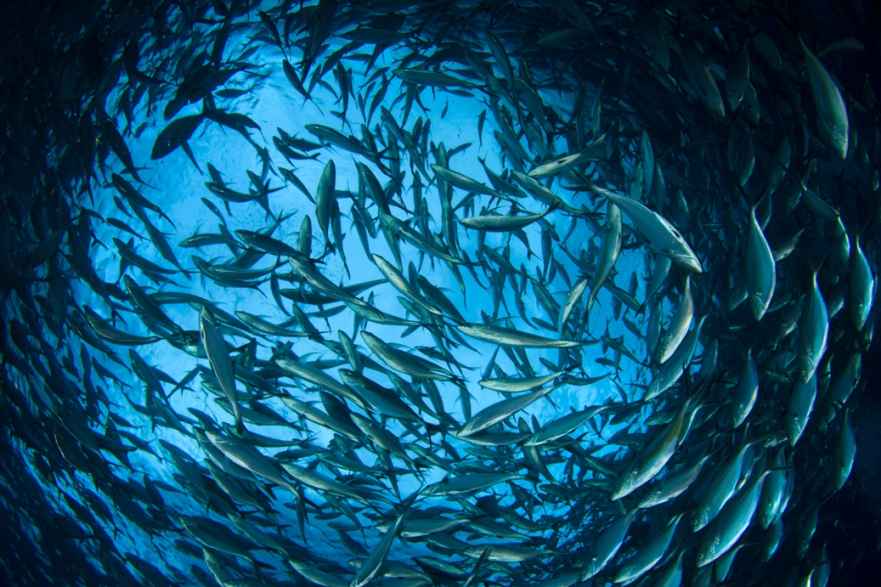Food traceability platform and Impact Tech Venture OpenSC secures $4 Million in seed funding to help eliminate modern slavery in supply chain

The future of the planet and the livelihoods of millions of people around the world are driven by the production of goods we buy every day including beef, seafood, sugar, paper and cotton. As consumers (in particular, millennials) and retailers are demanding more information about what they source, buy and consume, one Australia-based blockchain startup, OpenSC, is on a mission to track food and products so businesses and consumers can avoid purchasing or consuming illegal, environmentally-damaging or unethical products.
Questions such as, “Was this produced by legally registered workers?,” or “Was this farmed on deforestation-free land?,” are just a few of the questions OpenSC will answer with a quick scan on a mobile device. OpenSC is an impact venture developed in partnership by the World Wide Fund for Nature Australia (WWF-Australia) and BCG Digital Ventures (BCGDV), the global corporate venture, investment, and incubation arm of Boston Consulting Group.
Today, OpenSC announced it has raised $4 million in seed funding from strategic impact investors.
The funds will be used to further the development of OpenSC’s digital platform, which leverages blockchain and other technologies for tracking food and products, as well as helping people and businesses avoid illegal, environmentally-damaging, or unethical products.
Impact investors who have joined the round include Working Capital (supported by Humanity United), an early-stage venture fund focused on scalable solutions that promote ethical supply chains and protect vulnerable workers, and Christian Wenger, founder of digitalswitzerland and a key figure driving technology innovation and entrepreneurship in Switzerland.
OpenSC has successfully implemented an international pilot with Austral Fisheries that tracks the Patagonian Toothfish (historically a victim of illegal poaching), and it also recently started two pilots with Nestle to trace milk from farms and producers in New Zealand to factories and warehouses in the Middle East and, later, to track palm oil sourced in the Americas.
OpenSC is focusing its technology platform on building transparency around commodities that are currently known to have significant environmental or human rights risks within their supply chains, such as seafood, timber, and palm oil. In addition to scaling up work with Austral Fisheries, OpenSC also has recently announced a collaboration with Nestlé. As the first major food and beverage company to pilot blockchain technology in this way, Nestlé will use the OpenSC platform to trace milk products from farms in New Zealand to consumers in the Middle East, and, later, to track palm oil sourced in the Americas.
OpenSC is the result of a collaboration that brings together BCGDV’s expertise in corporate venturing and developing blockchain-enabled supply chain traceability solutions, with WWF’s 30 years of leadership in supply chain transformations to reduce environmental impacts. OpenSC is the first impact venture to spin out of Panda Labs, WWF’s global innovation program, which was founded in 2017.
Commenting on the funding, Markus Mutz, incoming CEO of OpenSC and a director with BCG Digital Ventures, said: “We’re on a mission to help producers, retailers, and consumers choose products that are good for the planet and good for workers.” He also added: “We’ve reached a point where technology has evolved and can be harnessed to create a whole new level of transparency and re-build trust. At OpenSC, we believe this will revolutionise the way we humans consume and, therefore, the way that we humans produce.”
“Working Capital is delighted to add OpenSC to our global portfolio of leading startups that we believe will drive positive change, promote responsible business practices, and improve the lives and well-being of millions of vulnerable workers who produce the goods we use and consume every day,” said Ed Marcum, managing director of Working Capital. “The complexity and opacity of global supply chains can allow forced labor and human exploitation to happen unseen by corporations, and tools like OpenSC can shine some much-needed light.”
“Supporting OpenSC’s mission is important to me because the work they are doing is creating positive and scalable outcomes for people and the planet. With three world-leading organisations bringing their capabilities together – from WWF’s decades of conservation expertise and BCGDV’s impressive track record of building successful ventures, to Working Capital’s focus on human rights and ending modern slavery – the potential of OpenSC to make a positive impact is incredibly exciting,” said Christian Wenger.
“WWF is committed to finding innovative solutions that protect both people and the planet. We are delighted that Working Capital and Christian Wenger have backed OpenSC to bring both capital and expertise in anti-slavery issues and digital innovation behind the venture,” said Kavita Prakash-Mani, global conservation director at WWF-International. “The world is facing unprecedented challenges, such as loss of nature and climate change, which are undermining the very resources humanity depends upon. It’s clear that we need to increase efforts to find innovative solutions, new ways of working, and emerging technologies to bend the curve on the loss of biodiversity and secure habitats and species.”
“OpenSC gives companies and consumers a new level of visibility into supply chains. Enabled by data and insights, companies will be able to make responsible sourcing decisions that support producers who respect human rights and use environmentally sound practices. And consumers will be empowered with trustworthy, tamper-proof information about the individual products they are buying,” said Dermot O’Gorman, CEO of WWF-Australia.
“As BCGDV’s first social impact venture, OpenSC signifies our strong commitment to helping business drive sustainable and ethical operations through the application of leading technologies such as blockchain. With OpenSC, we were able to leverage our expertise in corporate venture building to create a platform that helps solve issues of environmental degradation of habitats and species, as well as social injustice and human rights issues. The platform also makes good business sense by helping to optimise business supply chain operations, reduce costs, and enable producers to manage issues such as product recalls,” said Paul Hunyor, partner and managing director of BCG Digital Ventures.

